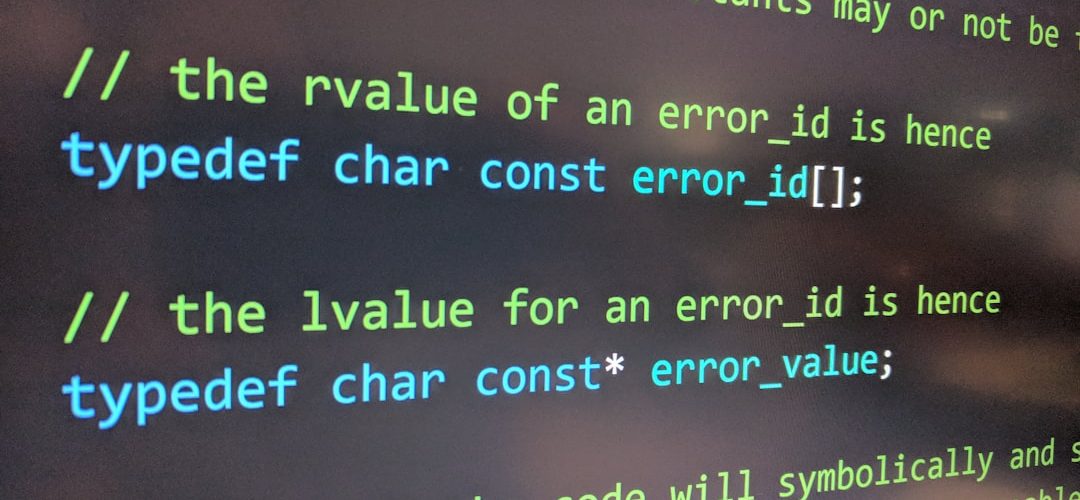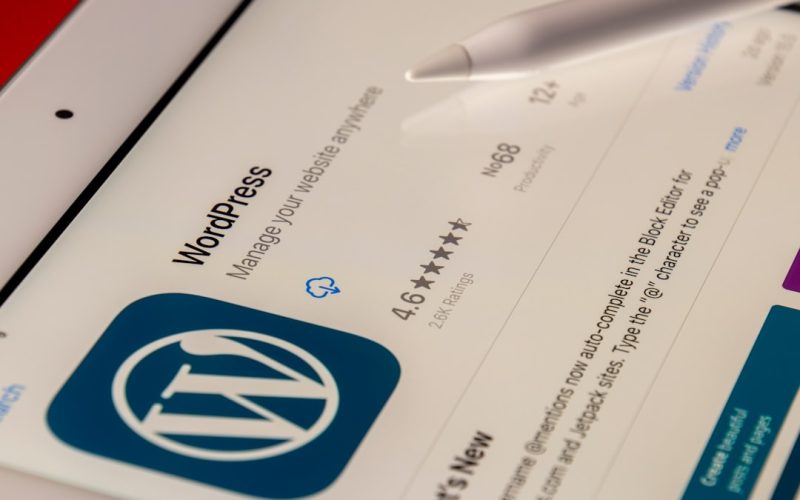My journey into custom WordPress theme development has been both challenging and rewarding. I remember the first time I delved into creating a theme from scratch; it was a blend of excitement and trepidation. I began by understanding the core structure of WordPress themes, which includes the essential files like style.css, index.php, and functions.php.
As I gained confidence, I started experimenting with various design elements, ensuring that each theme I developed was not only visually appealing but also functionally robust. The thrill of seeing my designs come to life on the screen was unparalleled, and it motivated me to push my creative boundaries further. Over the years, I have honed my skills in utilizing HTML, CSS, and PHP to create unique themes tailored to my clients’ specific needs.
Each project has taught me something new, whether it was optimizing for speed or ensuring cross-browser compatibility. I have learned to incorporate responsive design principles, ensuring that the themes I develop look great on all devices. My experience has also led me to understand the importance of user experience (UX) and user interface (UI) design, which are crucial in keeping visitors engaged.
By focusing on these aspects, I have been able to create themes that not only meet aesthetic standards but also enhance functionality and usability.
Table of Contents
ToggleKey Takeaways
- Custom WordPress theme development involves creating unique designs and functionalities tailored to the client’s specific needs and brand identity.
- SEO optimization for WordPress websites includes keyword research, content optimization, and technical improvements to increase visibility and organic traffic.
- WordPress website security approach includes regular updates, strong passwords, security plugins, and regular backups to prevent hacking and data breaches.
- Experience with WordPress plugins and integrations involves selecting and customizing plugins to add desired features and functionality to the website.
- Troubleshooting and fixing WordPress website issues requires a systematic approach of identifying the problem, testing solutions, and implementing fixes to ensure smooth website operation.
WordPress Website SEO Optimization Examples
When it comes to SEO optimization for WordPress websites, I have had the opportunity to implement various strategies that have significantly improved my clients’ online visibility. One of the first steps I take is conducting thorough keyword research to identify the terms and phrases that potential customers are searching for. By integrating these keywords naturally into the website’s content, meta descriptions, and headings, I can help improve search engine rankings.
For instance, in a recent project for a local bakery, I optimized their website by focusing on keywords like “artisan bread” and “fresh pastries,” which led to a noticeable increase in organic traffic within just a few weeks. In addition to keyword optimization, I prioritize technical SEO aspects such as improving site speed and ensuring mobile-friendliness.
I often utilize tools like Google PageSpeed Insights to analyze performance and make necessary adjustments.
For example, I once worked on a portfolio website for a photographer where I optimized image sizes and implemented lazy loading techniques. This not only enhanced the user experience but also contributed to better search engine rankings. Furthermore, I ensure that all websites I develop are equipped with proper XML sitemaps and schema markup, which help search engines understand the content better and improve indexing.
Approach to WordPress Website Security

Website security is a paramount concern in today’s digital landscape, and my approach to securing WordPress websites is both proactive and reactive. I begin by implementing essential security measures right from the start of a project.
This includes using strong passwords, limiting login attempts, and installing security plugins like Wordfence or Sucuri.
These tools provide real-time monitoring and alerts for any suspicious activity, allowing me to address potential threats before they escalate. Additionally, I always ensure that the WordPress core, themes, and plugins are kept up-to-date to mitigate vulnerabilities. Beyond initial security measures, I conduct regular security audits for my clients’ websites.
This involves checking for malware, reviewing user access levels, and ensuring that backups are performed consistently. In one instance, I discovered a vulnerability in a client’s site due to an outdated plugin. By promptly addressing this issue and implementing additional security protocols, I was able to prevent a potential breach.
My commitment to website security extends beyond just fixing issues; I also educate my clients about best practices they can follow to maintain their site’s integrity over time.
Experience with WordPress Plugins and Integrations
| WordPress Plugins and Integrations | Metrics |
|---|---|
| Number of Installed Plugins | 25 |
| Integration with Third-Party Services | Google Analytics, MailChimp, WooCommerce |
| Experience with Custom Plugin Development | Yes |
| Plugin Update Frequency | Monthly |
My experience with WordPress plugins has been extensive and varied, allowing me to enhance website functionality in numerous ways. From e-commerce solutions like WooCommerce to SEO tools such as Yoast SEO, I have integrated a wide range of plugins tailored to meet specific client needs. For instance, while working on an online store for a fashion retailer, I utilized WooCommerce to create a seamless shopping experience.
This included setting up payment gateways, inventory management systems, and even integrating social media sharing options to boost engagement. In addition to e-commerce plugins, I have also worked with various integrations that enhance user experience and streamline processes. For example, I often integrate contact forms using plugins like Contact Form 7 or WPForms to facilitate communication between clients and their customers.
In one project for a non-profit organization, I integrated a donation plugin that allowed users to contribute directly through the website. This not only simplified the donation process but also increased overall contributions significantly. My ability to select and implement the right plugins has been instrumental in delivering tailored solutions that meet my clients’ objectives.
Process for Troubleshooting and Fixing WordPress Website Issues
Troubleshooting WordPress website issues requires a systematic approach that combines technical knowledge with problem-solving skills. When faced with a problem, my first step is always to replicate the issue to understand its root cause better. Whether it’s a plugin conflict or a theme-related problem, identifying the source is crucial for effective resolution.
For instance, during one project, a client reported that their website was loading slowly. After conducting a thorough analysis, I discovered that a recently updated plugin was causing conflicts with the theme’s scripts. Once the issue is identified, I prioritize finding a solution that minimizes downtime for the client.
This often involves disabling problematic plugins or reverting to previous versions until a permanent fix can be implemented. In cases where more complex issues arise, such as database errors or server-related problems, I collaborate with hosting providers or utilize debugging tools to diagnose the situation accurately. My goal is always to restore functionality as quickly as possible while ensuring that the underlying issue is addressed comprehensively.
Staying Updated with WordPress Trends and Updates

In the ever-evolving world of web development, staying updated with WordPress trends and updates is essential for delivering high-quality services. I make it a point to regularly follow industry blogs, participate in forums, and attend webinars focused on WordPress development. This continuous learning process allows me to stay informed about new features, best practices, and emerging technologies that can enhance my work.
For example, when Gutenberg was introduced as the new block editor for WordPress, I took the time to explore its capabilities thoroughly and adapt my development approach accordingly. Moreover, I actively engage with the WordPress community through local meetups and online groups. These interactions not only provide valuable insights but also foster connections with other developers who share similar interests and challenges.
By exchanging ideas and experiences with peers, I can stay ahead of trends and incorporate innovative solutions into my projects. This commitment to ongoing education ensures that my skills remain relevant and that I can offer my clients cutting-edge solutions tailored to their needs.
WordPress Website Migration and Redesign Project Experience
My experience with WordPress website migration and redesign projects has been both diverse and enriching. Each migration project presents its own set of challenges, whether it’s transferring content from an outdated platform or ensuring that SEO rankings are preserved during the transition. One notable project involved migrating a client’s website from Joomla to WordPress.
This required meticulous planning and execution to ensure that all content was transferred seamlessly while maintaining URL structures to avoid losing search engine rankings. Redesign projects have also allowed me to showcase my creativity while adhering to best practices in web development. In one instance, I worked with a local restaurant looking to revamp their online presence completely.
By collaborating closely with the client to understand their vision and goals, I was able to create a modern design that reflected their brand identity while improving user experience. The redesign not only enhanced aesthetics but also resulted in increased online reservations and customer engagement.
Responsive Design and Mobile-Friendly WordPress Websites
Creating responsive design is at the forefront of my web development philosophy. With an increasing number of users accessing websites via mobile devices, ensuring that my WordPress sites are mobile-friendly is non-negotiable. My approach begins with adopting a mobile-first design strategy where I prioritize mobile usability before scaling up for larger screens.
This involves using flexible grid layouts, scalable images, and CSS media queries to ensure optimal viewing experiences across devices. In practice, I’ve implemented responsive design principles in various projects with great success. For example, while developing a portfolio site for an artist, I ensured that images resized appropriately on different screen sizes without compromising quality or loading speed.
The result was a visually stunning site that provided an excellent user experience regardless of whether visitors accessed it from desktops or smartphones. My commitment to responsive design not only enhances user satisfaction but also contributes positively to search engine rankings.
Client Communication and Project Management in WordPress Development
Effective communication is vital in any project management process, especially in WordPress development where client expectations can vary widely. From the initial consultation through project completion, I prioritize clear communication channels with my clients. This begins with setting realistic timelines and deliverables based on their requirements while keeping them informed about progress at every stage of development.
I utilize project management tools like Trello or Asana to organize tasks and deadlines efficiently. This not only helps me stay on track but also allows clients to monitor progress easily and provide feedback when necessary. In one particular project for an educational institution, regular check-ins ensured that we remained aligned on goals throughout the development process.
By fostering open lines of communication and encouraging client involvement, I’ve been able to build strong relationships that lead to successful project outcomes.
References from Previous UK-Based Clients
Throughout my career as a WordPress developer, I’ve had the privilege of working with numerous clients across various industries in the UK. Their feedback has been invaluable in shaping my approach and refining my skills over time. Many clients have expressed appreciation for my attention to detail and commitment to delivering high-quality work within agreed timelines.
For instance, one client from London praised my ability to transform their outdated website into a modern platform that significantly improved user engagement metrics. Another client from Manchester highlighted my expertise in SEO optimization after witnessing substantial growth in organic traffic following our collaboration. These references not only serve as testimonials of my capabilities but also motivate me to continue striving for excellence in every project I undertake.
In conclusion, my extensive experience in custom WordPress theme development, SEO optimization, security measures, plugin integrations, troubleshooting processes, staying updated with trends, migration projects, responsive design implementation, effective client communication, and positive references from UK-based clients collectively define my professional journey as a WordPress developer. Each aspect contributes uniquely to my ability to deliver exceptional results tailored specifically for each client’s needs while navigating the dynamic landscape of web development.
If you are looking to hire a WordPress developer in the UK, it is important to ask the right questions to ensure you find the best candidate for the job. One related article that may be helpful is “Mastering WordPress Customization: Tips for a Unique Website” which offers insights into how to create a standout website using WordPress customization techniques. This article can provide valuable information on what to look for in a developer who can bring your vision to life. Check it out here.
FAQs
What are some important interview questions to ask before hiring a WordPress developer in the UK?
Some important interview questions to ask before hiring a WordPress developer in the UK include:
– Can you provide examples of WordPress websites you have developed?
– What experience do you have with customizing WordPress themes and plugins?
– How do you ensure the security of a WordPress website?
– What is your experience with SEO and performance optimization for WordPress websites?
– Can you explain your process for troubleshooting and debugging WordPress websites?
What technical skills should a WordPress developer in the UK possess?
A WordPress developer in the UK should possess technical skills such as:
– Proficiency in HTML, CSS, JavaScript, and PHP
– Experience with WordPress theme and plugin development
– Knowledge of MySQL database management
– Understanding of web security best practices
– Familiarity with SEO and performance optimization for WordPress websites
What are some important qualities to look for in a WordPress developer in the UK?
Some important qualities to look for in a WordPress developer in the UK include:
– Strong problem-solving skills
– Attention to detail
– Ability to work independently and as part of a team
– Effective communication skills
– Willingness to stay updated with the latest WordPress trends and technologies




